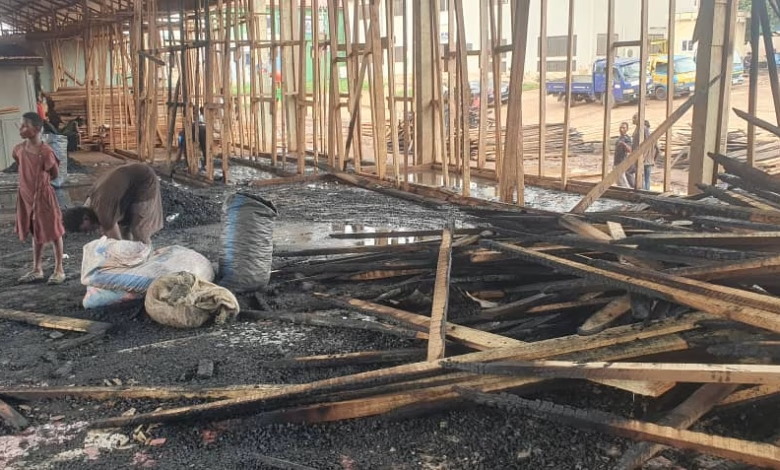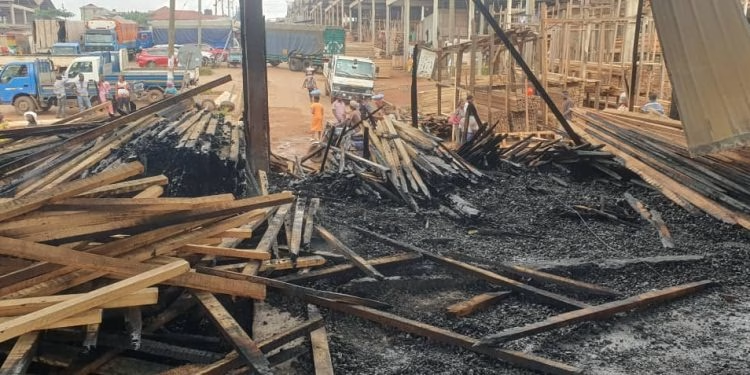Fire Destroys Sokoban Wood Village, Workers Call for Assistance

- Sokoban wood village fire destroys 18 sheds
- Workers face financial ruin, uncertainty
- Investigation into fire cause underway
- Workers seek aid from political parties
A devastating fire swept through the Sokoban wood village in the Ashanti region on Thursday, October 3, 2024, leaving wood workers frustrated and helpless. The blaze destroyed 18 sheds and their contents, reducing the primary source of livelihood for many traders to ashes. With huge bank loans to repay, the victims are now struggling to make ends meet.
The fire incident has had a profound impact on the affected workers, who are now uncertain about their future. One worker expressed his concerns, saying, “I have a lot of dependents, including children in school and a widowed mother. This disaster will affect me greatly, and I’m unsure what the future holds”.
Another worker echoed similar sentiments, stressing that the government should intervene to support them. “With children attending Legon and KNUST, how will we provide for them? We need assistance from any political party willing to help, whether NPP, NDC, or otherwise”.
According to DOII Peter Addai, the Ashanti regional Public Relations Officer of the Ghana National Fire Service, investigations are ongoing to determine the cause of the fire. He noted that four fire tenders were deployed to salvage the situation, and thankfully, no casualties were reported.
The fire damaged 18 shops specializing in plywood and other wood products, but 32 shops were successfully saved. The affected workers are now appealing to political parties for aid, vowing to vote for any party that comes to their assistance.
The incident highlights the vulnerability of small-scale businesses to disasters and the need for support systems. The workers’ plea for help has sparked concerns about the government’s response to such crises.

As the investigation unfolds, the community remains anxious, awaiting answers and relief. The Sokoban wood village fire has underscored the importance of emergency preparedness and support for local businesses.
In the meantime, the affected workers continue to struggle, facing uncertainty about their livelihoods. Their appeal for help serves as a reminder of the human impact of such disasters.
The Ghana National Fire Service’s efforts to contain the fire and salvage nearby shops are commendable. However, more needs to be done to address the long-term consequences of this disaster.







